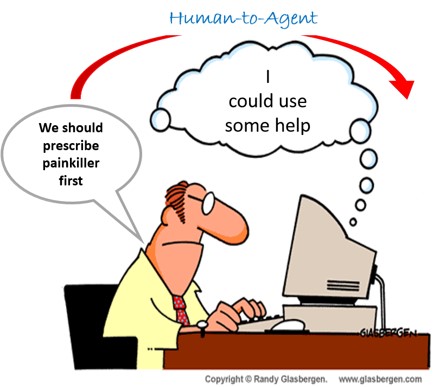Knowledge-based Learning
Knowledge-rich approaches to learning and sequential decision-making try to alleviate the limitations of data-driven techniques caused by noise, stochasticity and asymmetry of knowledge. They leverage rich knowledge assimilated by domain experts through years of experience to learn better models. Recent years have witnessed a major research thrust in this direction and our group is an active contributor to this cause; focused on building knowledge-augmented learning frameworks for representation and elicitation of knowledge from, potentially multiple, expert(s) for optimal learning both structure and parameters of compact models from noisy structured data both in context of prediction/regression tasks as well as sequential decision-making (RL, planning, Imitation Learning etc.). Specifically, we address ‘asymmetry of knowledge’ where an AI agent may have access to certain resources and vast computational power but may lack the necessary knowledge to prioritize choices. Human experts understand such priorities implicitly and we leverage that to generate better models.
Our research includes, but is not limited to, knowledge-augmented Statistical Relational Learning, human guided decision-making (esp. in stochastic, partially observable, semi-structured environments), various modalities of human guidance and knowledge elicitation and, finally, successful application of such systems to real-world tasks such as health, biomedicine and finance. Recently we have also been focusing on knowledge-guided deep models to alleviate one of the major bottlenecks of deep learning (sub-optimal learning in presence of sparse/noisy data).
Publications
- Mathur, S., Karanam, A., Radivojac, P., Haas, D.M., & Natarajan, S., “Exploiting Domain Knowledge as Causal Independencies in Modeling Gestational Diabetes”, Pacific Symposium on Biocomputing (PSB) 2023.
- Kokel, H., Odom, P., Yang, S., & Natarajan, S., “Knowledge-intensive Gradient Boosting”, Twenty-Ninth AAAI Conference on Artificial Intelligence (AAAI) 2020.
- Odom, P., Khot, T., Porter, R., & Natarajan, S., “Knowledge-Based Probabilistic Logic Learning”, Twenty-Ninth AAAI Conference on Artificial Intelligence (AAAI) 2015.
- Odom, P., Bangera, V., Khot, T., Page, D., & Natarajan, S., “Extracting Adverse Drug Events from Text using Human Advice”, Artificial Intelligence in Medicine (AIME) 2015.
- Yang, S., Khot, T., Kersting, K., Kunapuli, G., Hauser, K., & Natarajan, S., “Learning from Imbalanced Data in Relational Domains: A Soft Margin Approach”, International Conference on Data Mining (ICDM) 2014.
- Yang, S., & Natarajan, S., “Knowledge Intensive Learning: Combining Qualitative Constraints with Causal Independence for Parameter Learning in Probabilistic Models”, European Conference on Machine Learning, (ECMLPKDD) 2013.
